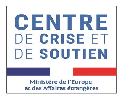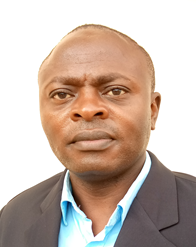Inades-Formation Cameroun
NATIONAL ASSOCIATION SINCE July 1994
Key figures
11,255 beneficiaries
326 organizations supported
03 completed projects
Story
Inades-Formation Cameroun started its actions in 1970 with the opening, in Douala, of the Establishment Office, under the coordination of Father Gonzague Danbricourt. He obtained official recognition in 1972.
In 1973 and 1976, the Antennas of Maroua and Bamenda were respectively opened. In September 1978, the National Directorate was created in Yaoundé and Douala became an Antenna, until 1989 when it closed its doors.
On July 20, 1994, the National Association Inades-Formation Cameroun was recorded on the baptismal font and was registered in 1995 under the receipt N ° 00192 / ROA / J06 / BAPP of May 1995. An agreement relating to the Headquarters of Inades-Formation Cameroun was signed in July 1995 between Inades-Formation International and the Republic of Cameroun.
It was also during the 1994-1995 financial year that the organs of the Association (Board of Directors, General Assembly, Antenna Council) were set up and became operational. From 2006, the partner farmer organizations of Inades-Formation Cameroun began to be associated with the reflections in the Antenna Councils.
In 2010, Inades-Formation Cameroun celebrated its 40th anniversary.
Projects

MISEREOR project

CDCS project
Inades-formation Cameroun authorities
1. The General Assembly
The General Assembly is the supreme organ of the association. It determines the general orientations of the activity of the Association and the objectives to be pursued.
2. The Executive Committee
The Executive Committee has the most extensive powers on behalf of the National Association in matters of administration. In particular, it has the powers of:
- Appoint the Director of the National Office and submit it to the approval of the President of the International Association
- Ensure the application of the decisions of the General Assembly;
- Approve the action plan;
- Approve the Annual Work Plan (PTA) and the corresponding budget;
- Read more ….
3. The Supervisory Board
The Supervisory Board has the following missions, among others:
- Monitor the achievement of the Association’s corporate purpose;
- Periodically monitor the Association’s expenses and suggest ways and means of optimizing the budget for overheads;
- Follow the management of the association by the Executive Committee and offer advice for improvement if necessary;
- Ensure the preservation of heritage;
- Ensure compliance with legal and regulatory requirements as well as the decisions of the bodies.
4. The National Office

Mr. LEKEULEM Alain
National office director

Mr. DAKGNA Abel
Antenna Delegate

Mr. SAMA KHAN Emmanuel
Antenna Delegate

Mrs KAANE Jeanne Ginette
Administrative and Finance Manager

Mrs NDJONGO Charlotte
Executive Assistant

Mr. BOKAGNE Raphaël
Project manager

Mrs MBALLA Elisabeth
Project Manager

Mr. AGHO Claude
Project Manager

Mrs SINDJUI Philomène
Training officer

Mr. MESSI Justin Patrick
Driver

Mr. MANGANA François
Driver

Mr. NIBA Paul
Driver

Mr. ELLA Jérôme Dimitri
Service Agent

Mr. FONGANG Harry
Service Agent

Mr. ALIU Nanaye
Security agent
Contact Inades-Formation Cameroon
Phone
+237 222 21 15 51
Geographic address
BP 11 Yaounde
Cameroon
E-mail address
inadesformation.cameroun@inadesfo.net




